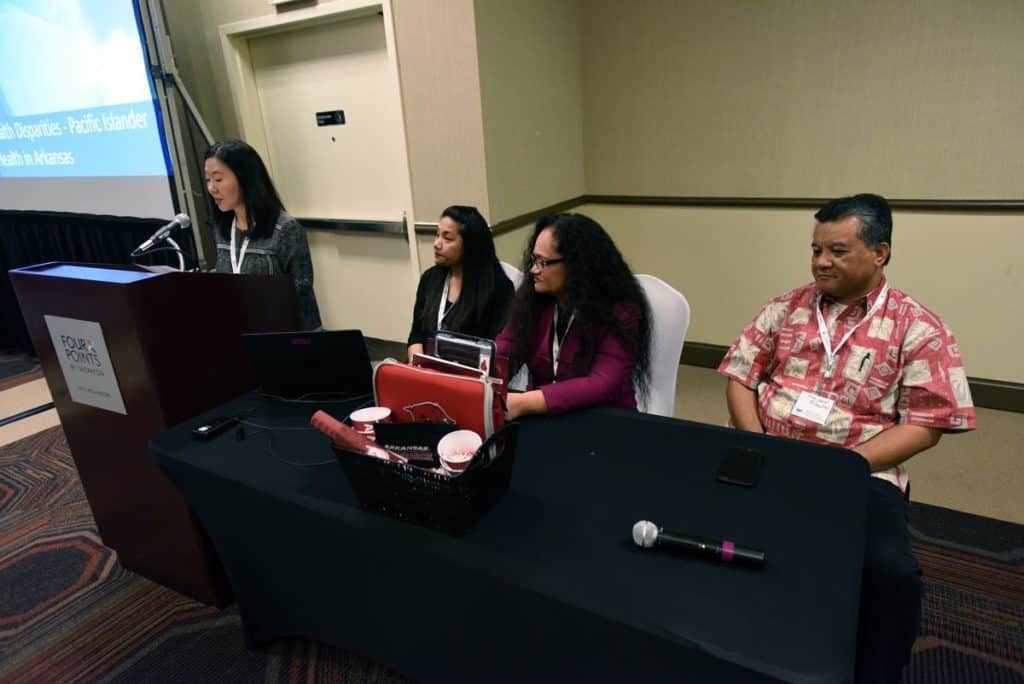
The importance of partnerships and networking to reduce health disparities was emphasized April 7 at the Community Campus Partnership Conference to address health disparities held at the Four Points by Sheraton in Little Rock.
The conference, presented by the University of Arkansas for Medical Sciences (UAMS), brought together over 200 faith and community leaders, educators, health care providers and researchers to discuss health equity in Arkansas.
“This is an opportunity for us, as researchers, to explain to community leaders what community-based participatory research is, as well as an opportunity to share the research we’ve been working on with the faith community and what we have found along the way,” said Keneshia Bryant-Moore, Ph.D, R.N., associate professor in the UAMS College of Public Health’s Health Behavior and Health Education Department and conference planning committee chairperson.
Attendees are able to utilize the conference to identify potential partners, as well as tie already existing community programs to ongoing research.
Keynote speaker Joshua Dubois, former White House director of faith-based and neighborhood partnerships under President Barak Obama, discussed how effective it is for people in health care to partner with hospitals, the community and other leaders to reduce health disparities.
Dubois offered the “Memphis Model,” as an example of a community working together for health equity. The model shows that by engaging faith-based communities in partnerships, health care providers can build relationships with communities and determine how to reduce those existing health disparities.
The morning session featured Wana Bing, project manager for the UAMS Office of Community Health and Research; Nia Aitaoto, Ph.D., co-director of the UAMS Center for Pacific Islander Health; and Sheldon Ricklon, M.D., associate professor in the UAMS College of Medicine Department of Family and Preventive Medicine.
Northwest Arkansas is home to the largest population of Marshall Islanders outside of the country itself. The panel gave an overview of the history of this population coming to Arkansas and discussed the importance of the Marshallese community engaging in research.
The Marshallese in northwest Arkansas have high rates of diabetes and other chronic diseases, as well as disparities such as access to health care and healthy food options. This makes it even more important for them to engage with researchers so these disparities can be addressed.
The afternoon closed with breakout sessions on six main topics: service learning, brainstorming on addressing health issues in the community, community-based participatory research training, faith and government collaborations for health equity, mental health in faith communities, and best practices to engage faith communities.
The conference was supported by grants from the Patient-Centered Outcomes Research Institute (PCORI) Eugene Washington PCORI Engagement Award, the Health Resources and Services Administration (HRSA) Nursing Workforce Diversity grant, the UAMS Translational Research Institute, and the Arkansas Minority Health Commission. It was held in collaboration with the Arkansas Foundation for Medical Care, the Arkansas Department of Health and Baptist Health Physician Partners.
